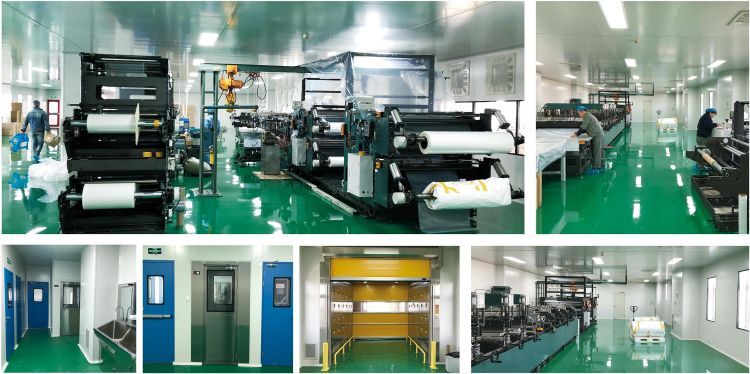3 Key Factors That Impact Your Cleanroom HEPA Filter Lifespan
- 2024-05-03
- View 16
Cleanrooms require limiting and controlling the number of impure air particulates within their surroundings. Utilizing high-efficiency particulate air (HEPA) filters is common for manufacturers in varying industries to control their cleanroom environments. However, the lifespan of a HEPA filter can vary, and this article addresses three factors that influence a HEPA filter’s lifespan.

3 Key Factors That Impact Your Cleanroom HEPA Filter Lifespan
1. Your Organization’s Cleanroom Requirements
The International Organization for Standardization creates cross-industry and cross-country requirements, to arrive at a universally accepted norm for cleanroom classifications. These standards dictate the acceptable level of air cleanliness as determined by particle concentration per cubic meter. They also outline the methods and evidence by which filtration monitoring and performance are reported. Cleanroom classifications are rated on a scale. Classifications vary depending on which industry you work in, such as pharmaceuticals, food, health care, or electronics, and the level of sensitivity to air particulate size. Variations can also occur, depending on the stage or type of activity, such as at-rest or operational. The more sensitive the environment to air impurities, the more work is required of your HEPA filter.
2. Your Cleanroom HVAC System
Your cleanroom HVAC system must be equipped and functioning optimally for your HEPA filter to maximize its performance. Implementing the proper HVAC system for the size of your cleanroom and the specific needs of the environment ensure optimal effectiveness. In addition to the proper method, environmental factors can also influence the system performance and your HEPA filter life span. For example, the volume of air filtered and recirculated play a role. Moreover, pre-filtration methods and their efficacy are also factors. HEPA filters can be costly, so it’s important to have the right HVAC system. A sound HVAC system is generally energy-efficient and includes a blower that can handle the workload it takes to push air through tight filtration. Finally, using the correct filter and filtration method is the most prominent component.
3. Routine Testing and Maintenance
HEPA filters operate at an efficiency of 99.975%. When they start to underperform, the consequences can be severe. Even though HEPA filters are designed to capture impurities and larger particulates throughout several air stream points, they lose effectiveness over time. An underperforming or malfunctioning HEPA filter can allow contaminants to enter the components in the cleanroom. Thus, it is important to perform routine testing and maintenance to extend your HEPA filter’s life.
Find the Best HEPA Filter for Your Cleanroom
If have any questions or requirements,do not hesitate to ask me. You can also learn more about our cleanroom offerings and request a free consultation.
